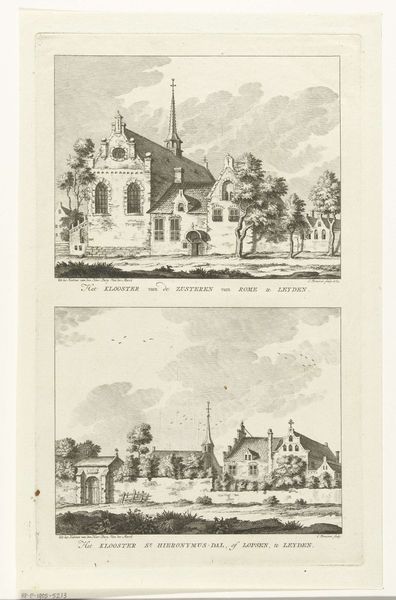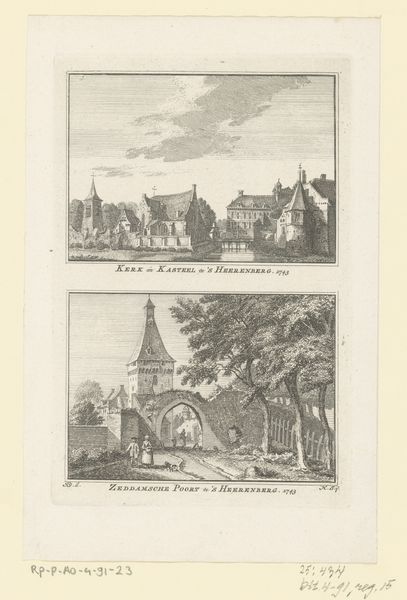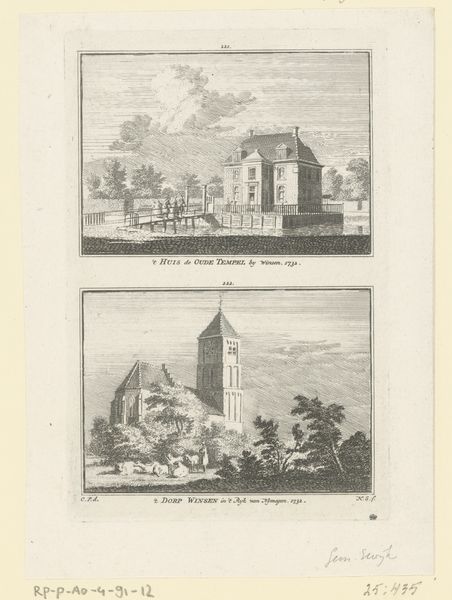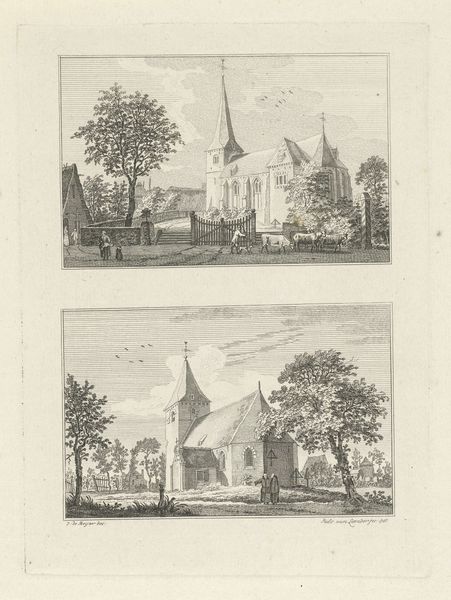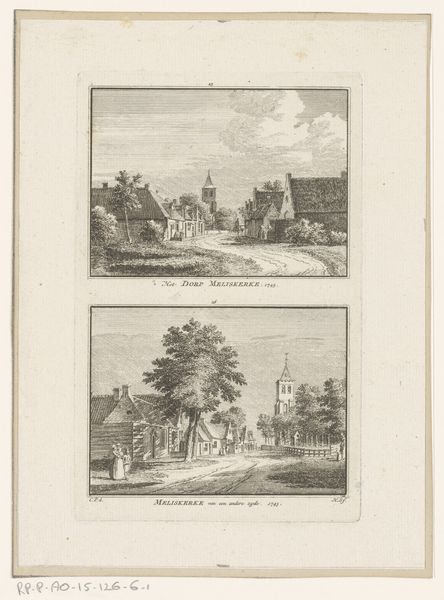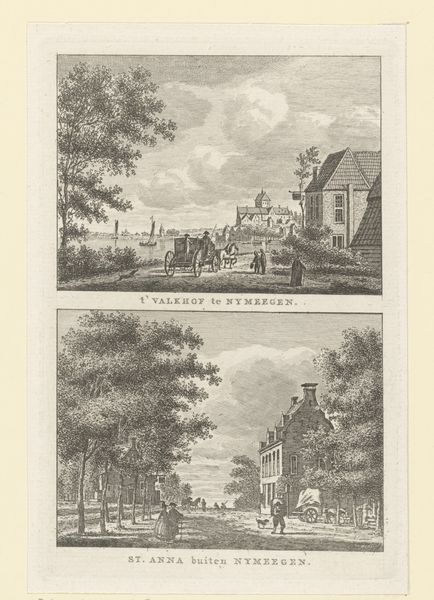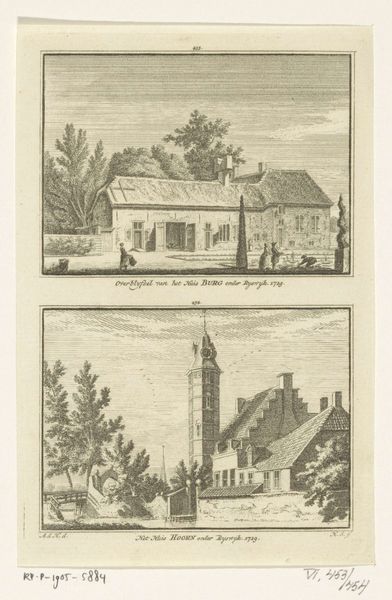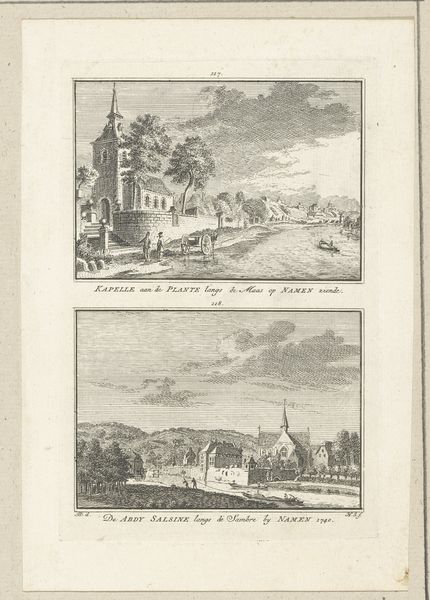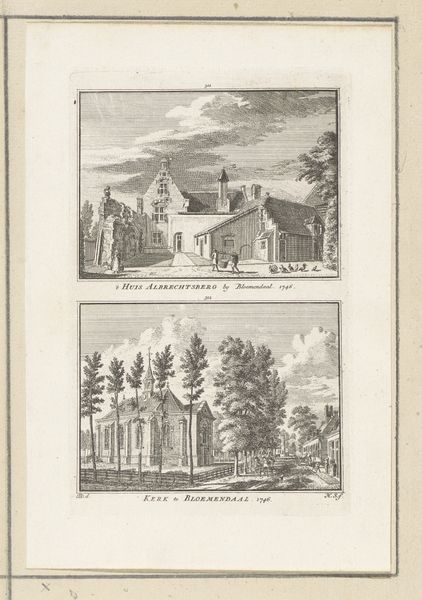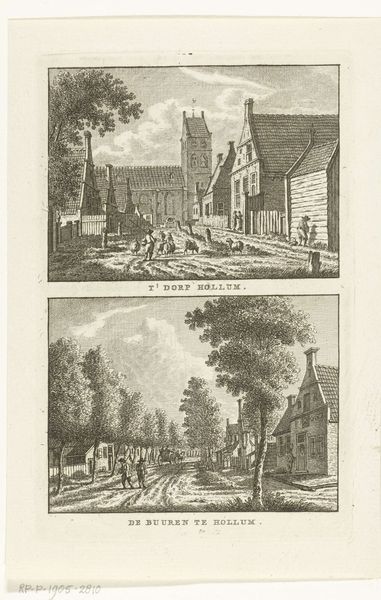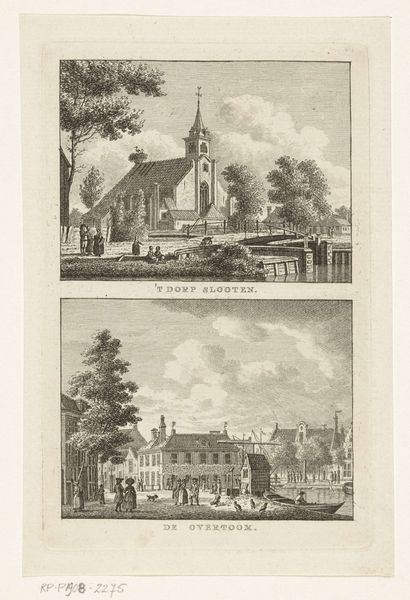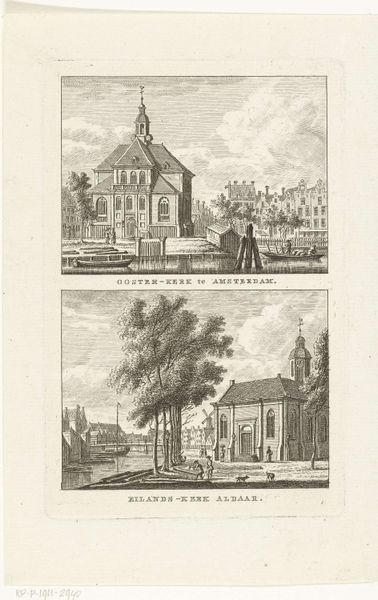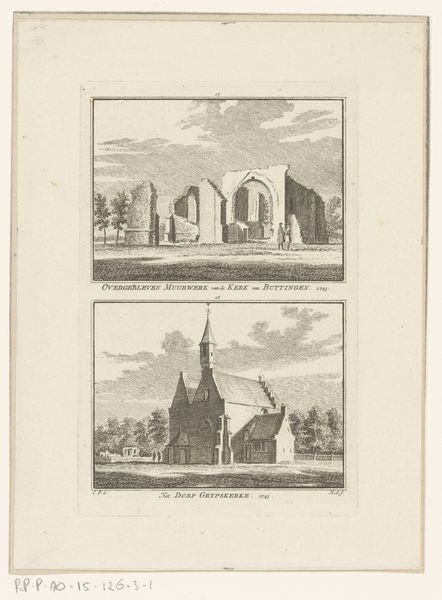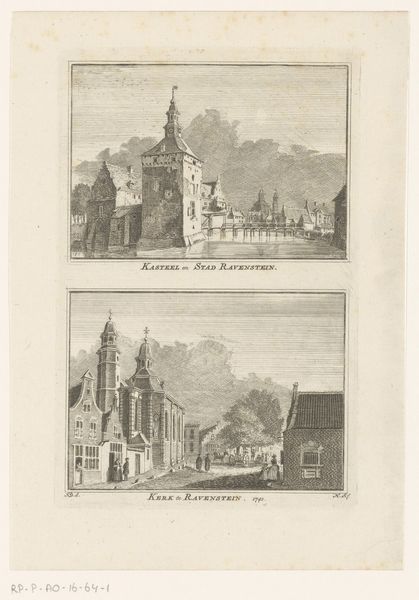
print, engraving
#
baroque
#
dutch-golden-age
# print
#
old engraving style
#
landscape
#
cityscape
#
engraving
Dimensions: height 160 mm, width 100 mm
Copyright: Rijks Museum: Open Domain
Hendrik Spilman created this print, "Gezichten op Leerbroek en Nieuwland", using etching, a printmaking technique with a long and rich history. With etching, a metal plate, usually copper or zinc, is coated with a waxy, acid-resistant substance called a ground. The artist then draws through the ground with a needle, exposing the metal. The plate is then immersed in acid, which bites into the exposed lines, creating grooves. The longer the plate stays in the acid, the deeper the lines become, and the darker they will appear when printed. Ink is then applied to the plate, filling the etched lines, and the surface is wiped clean. Finally, the plate is pressed onto a sheet of paper, transferring the ink and creating the print. The resulting image has a distinctive quality, with fine lines and delicate shading that capture the rural scenes. These types of prints were relatively inexpensive to produce at the time, and were accessible to a wide audience, helping to shape perceptions of the Dutch landscape and its social fabric. Appreciating the materials and processes behind this print allows us to see it as more than just an image, but also a product of its time, shaped by the possibilities and constraints of its making.
Comments
No comments
Be the first to comment and join the conversation on the ultimate creative platform.
